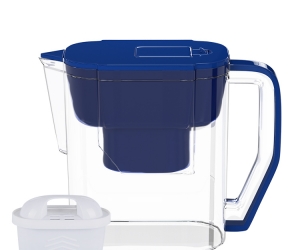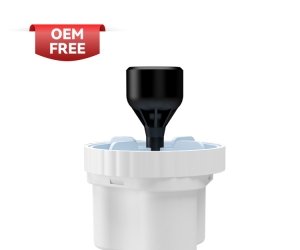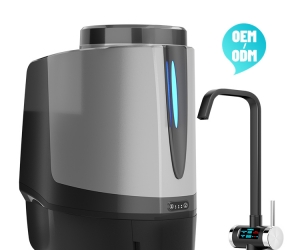Water softening is a process in which water flows through a resin filter, exchanging hardness ions, calcium and magnesium, for sodium ions. When the resin reaches the ability to maintain hard ions, the water softener starts a regeneration cycle. In this cycle, the sodium chloride salt solution flows through the resin, and the process is effectively reversed by exchanging sodium ions for hardness ions and washing the hardness ions along the drain. Contrary to popular belief, resin will not exist forever. During the entire service life of the water softener, the resin is always eroded by hydraulic impact, oxidation, penetration impact, attrition, and scaling. Resin manufacturers usually use ten years as a general rule of life expectancy, but this will vary greatly depending on the conditions the resin filter is in.
There are many failure mechanisms related to resin filter. The following is a brief description of some of the most common failures:
1.Sudden interruption of high-pressure water flow can cause the beads of resin filter to "impact" on the side of the storage tank and can cause the beads to break. It is recommended to avoid the use of quick-acting solenoid valves in system design to minimize this risk.
2.It is believed that the erosion of chlorine is similar to "cutting out" the elastic band around the spherical sponge, causing the beads to lose strength, swell and retain a higher moisture content. With swelling, the number of ion exchange sites will remain the same, but beads of resin filter now occupy a larger volume in the tank. This may result in resin filter beads that are broken.
3.During each regeneration cycle, oxygen is introduced into the brine, so iron scale will be produced in any system where the iron content in the influent water is increased. The iron oxide precipitate cannot be removed by conventional salt regeneration, and effectively blocks the resin exchange site that could have been softened, resulting in a decrease in capacity.
Water softeners are key equipment in many industries where failures can quickly lead to costly failures. Treating resin filter as a maintenance project rather than the "beads in a water tank" that is often forgotten is a good start for improving water system management.





